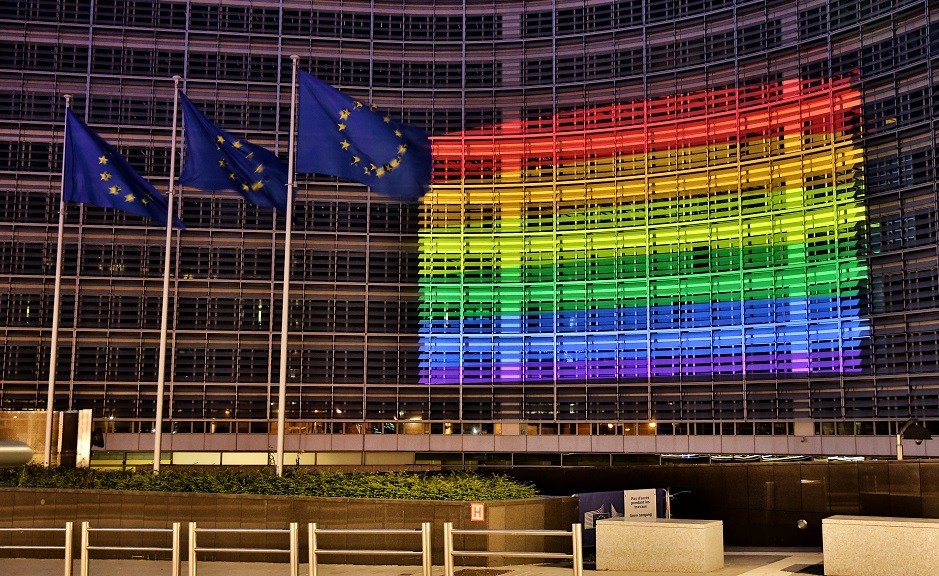BRUSSELS BEHIND THE SCENES
Weekly analysis and untold stories
With SAMUEL STOLTON
Other Brussels behind the scenes stories:
Barnier's last throw of the dice
Why Macron is banking on the Conference on the Future of Europe
The Enemies of European Football
LGBT conversion therapy still exists in Europe
Towards the end of 2018, Austria’s Ministry of Education came under pressure. There had emerged news of a mysterious Christian sex education organisation, TeenSTAR, which had installed representatives in 34 schools across the country, resolved to ‘cure’ homosexuality.
TeenSTAR’s program reportedly involved therapeutic courses for minors, self-help groups, and pastoral care. According to one representative from the organisation, their curriculum is based on extending the Christian image of man. The group regards homosexuality as an aberration resulting from a crisis of identity.
BRUSSELS BEHIND THE SCENES is a weekly newsletter which brings the untold stories about the characters driving the policies affecting our lives. Analysis not found anywhere else, The Brussels Times' Samuel Stolton helps you make sense of what is happening in Brussels. If you want to receive Brussels behind the scenes straight to your inbox every week, subscribe to the newsletter here.
After the teachings of TeenSTAR were exposed, the Ministry was forced to act. New rules that will come into effect later this year mean that schools in Austria will only be allowed to work with sex education organisations from a list of quality-checked institutions.
Conversion therapies are contrived to inhibit or manipulate an individual’s sexual nature or gender identity. From educational programs such as those conducted by TeenSTAR to the administration of psychoactive substances, from electroconvulsive therapy to ‘corrective’ violence, treatments can take many forms. Therapy for those exhibiting LGBT tendencies is designed under the assumption that any divergence from a standard of heterosexuality is a deformity in the human condition.
These practices have been widely condemned by campaigners as a form of modern-day torture, yet they are still being employed across Europe today. A report published last year by the International Rehabilitation Council for Torture Victims (IRCT) found the dispensation of medications for the cause of conversion therapy had been taking place in France, psychotherapy in Austria, Italy and Poland, and even instances of exorcisms and ritual cleansing in France and Spain. So far, of all EU nations, only Malta and Germany have banned conversion therapies, with exemptions in the latter country for adults. The UK government have also announced that the practice will be outlawed in England and Wales.
In Brussels, the IRCT’s findings put the issue of conversion therapy on the map for MEPs, prompting the European Parliament’s LGBTI intergroup to pen a letter to EU Commissioners Jourová, Dalli, and Kyriakides, calling for an outright ban.
The issue of LGBTIQ rights in Europe – or lack thereof, was raised in last week’s EU Council summit, where Hungary’s Prime Minister Viktor Orbán faced the ire of the Netherland’s Mark Rutte and Luxembourg’s Xavier Bettel in particular, following moves in Budapest to prohibit references to homosexuality or transgender subjects in educational material for under-18s.
Rutte was particularly forthright. Before the start of the summit, he said there was “nothing left for them [the Hungarian government] in the EU,” should they fail to withdraw the legislation. Bettel meanwhile, the EU’s only openly gay leader, was said to have shared personal anecdotes of his own plight during the evening gathering of heads of state.
The criticism was largely expected, but EU leaders appeared more fervent in their alarm at the actions of Hungary’s government, when compared to previous episodes that have fallen under the scope of Orbán’s anti-liberal policy agenda. In the past, the Prime Minister’s Fidesz party has been widely denounced for a lack of judicial independence in the country, state media takeovers, and the mistreatment of migrants.
However, on the issue of upholding LGBTIQ rights, EU leaders just couldn’t let it pass. No doubt incited by swathes of public attention on the subject, resulting partly from the uproar over UEFA’s decision not to allow Munich's Allianz Arena to be illuminated in rainbow colors during the Germany - Hungary Euro 2020 match recently, 17 member states had published a joint letter, calling on the EU to effectively tackle LGBTQI discrimination across the bloc.
Where will Europe invest this newfound momentum for defending the rights of the LGBTIQ community? Actions over the coming months will expose whether leaders last week were sincere in their castigation of the Hungarian government, or, whether in fact, it was all a superficial hue and cry over the actions of one of the bloc’s long-time rebels at a time of public scrutiny. Should it be the former, there would be no better place than to start probing the malevolent practice of conversion therapy. It seems for this cause, the worn tactic of consecutively publishing rather mild and tentative open letters, will simply not suffice.
BRUSSELS BEHIND THE SCENES is a weekly newsletter which brings the untold stories about the characters driving the policies affecting our lives. Analysis not found anywhere else, The Brussels Times' Samuel Stolton helps you make sense of what is happening in Brussels. If you want to receive Brussels behind the scenes straight to your inbox every week, subscribe to the newsletter here.

